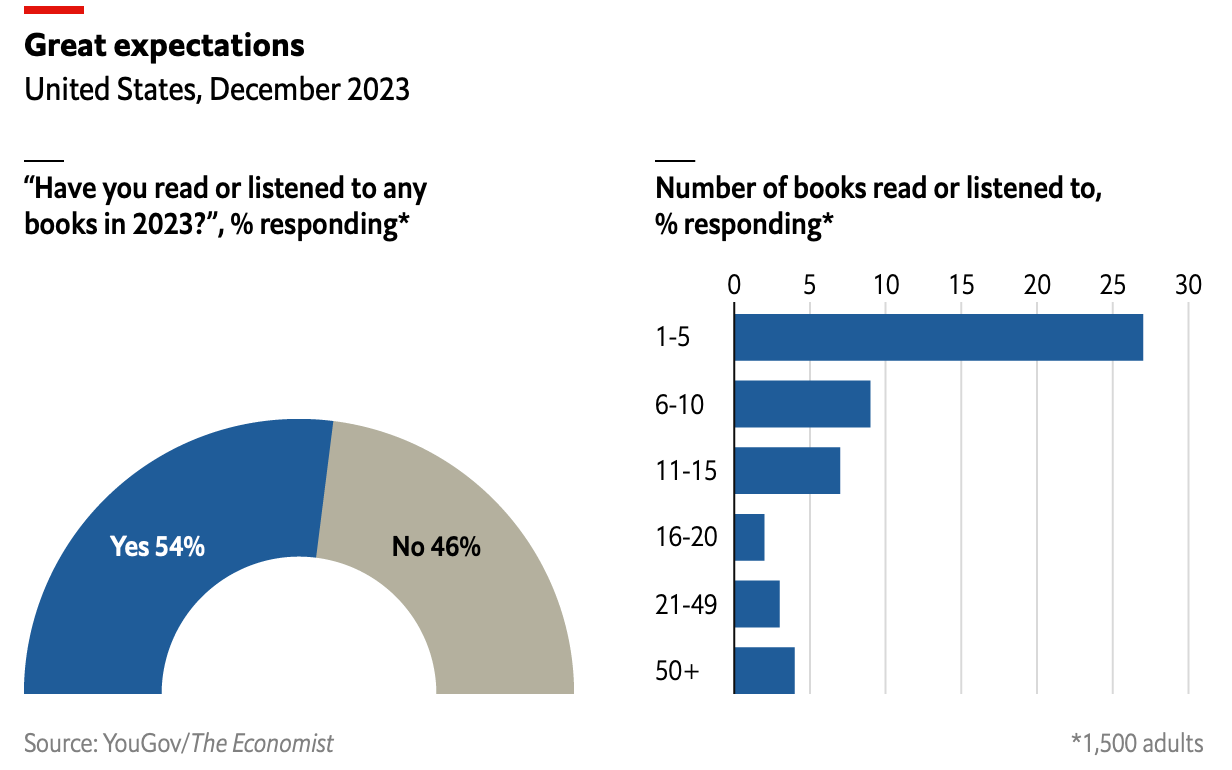As attention spans have shortened and modes of entertainment have multiplied, the idea of reading books has fallen a bit by the wayside. A survey conducted in December found that just over 50% of Americans had read a book1 in the past year .

Part of the problem is that there is an abundance of options to choose from. With the advent of Kindles and other eReaders in the past 15 or so years, you have basically the entire history of the written word at your beck and call. Sorting through it all to find something you want to read that is actually enjoyable can be intimidating (much like choosing which new streaming show to watch and defaulting to an old episode of The Office or Friends).
I thought I would take today to recommend 10 of the more interesting / enjoyable reads I have had over the past year. It’s a mix of fiction and non-fiction, serious and not-quite-so.
If you enjoy Nuance Matters, there is bound to be something on this list that you can dig into.
The Prize (1990) and The New Map (2020) by Daniel Yergin
Read this if: You are interested in the history of the oil and gas markets and how the recent push toward renewable energy is reshaping the geopolitics of energy.
For my first recommendation, I have paired two books by the same author that both warrant a look.
The Prize is epic, in every sense of the word (it’s 900 pages long! and the size of the font & margins make sure that every inch of paper is used). This book came out only a couple of years after I was born, so you may well have read it already. But if not, you will not find a more detailed history of the fossil fuel industry.
Starting in the 19th century with the first discovery of oil in Central Asia and the US, this tome goes on to tell the story of the 20th century through the perspective of the oil and gas markets. The middle of the story discussing the Second World War is particularly interesting.
Don’t get me wrong, it is long, but it is worth it - it didn’t win the Pulitzer Prize for nothing.
The New Map is a more forward-looking examination of how climate change and the pursuit of different forms of energy will shift the geopolitics of energy. If you only have time for one of these and are more interested in the current situation, I recommend picking this one up first. And at 450 pages, it is also more approachable and less intimidating than The Prize.
In this analysis, instead of going strictly chronological like he did in The Prize, Yergin tackles the situation through the perspectives of the major energy producers - the US, Russia, China and the Middle East.
Both of these books are a great introduction to the resources that have underpinned so much competition and conflict over the past 100 years.
Libra (1991) by Don DeLillo
Read this if: 60 years later, you are still curious about the JFK assassination.
Libra is a ‘fictional’ account of Lee Harvey Oswald’s life. I put fictional in quotes because while it is not a true-to-life biography or anything like that, it does present a very compelling story of Oswald’s life leading up to his decision to kill the president and external factors that might have contributed to that decision. Don DeLillo’s prose can be a bit difficult at times, but it is a rewarding read.2
Keep reading with a 7-day free trial
Subscribe to Nuance Matters to keep reading this post and get 7 days of free access to the full post archives.






